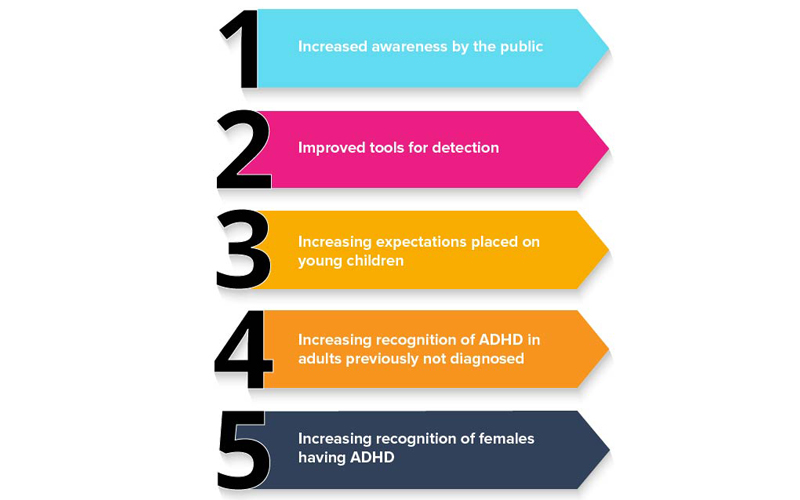Attention-Deficit/Hyperactivity Disorder
Myths about ADHD
ADHD is over diagnosed
- Research indicates that ADHD rates have significantly increased in recent years. This has led to the belief that ADHD is being diagnosed too frequently. This is not true.
- There are many reasons for the increasing incidence of ADHD including:

ADHD is only a problem in the United States
ADHD is seen in almost all cultures throughout the world. Based on a study completed in 2015*, it has been estimated that about 7.2% of children in the world have ADHD. In the United States, this number varies greatly from state to state. This may be due to environmental or genetic differences, variable access to medical care, and differences in educational systems. For these reasons, the number of children with ADHD also varies from country to country.
To read the study discussed above - Thomas et al. April 2015. Prevalence of Attention-Deficit/Hyperactivity Disorder: A Systematic Review and Meta-analysis
More information on the prevalence of ADHD in the United States
ADHD symptoms are typical of children and will resolve over time
All of the symptoms of ADHD are often seen in children, but people with ADHD have symptoms that are more severe and problematic than symptoms in those without ADHD. Although it is true that many ADHD symptoms improve with time, most adults previously diagnosed have some difficulties related to ADHD.
Medications can cure ADHD
There are no medications that cure ADHD. The medications available are effective at treating the symptoms of ADHD while being taken. Medications allow the person with ADHD to manage their symptoms temporarily and to benefit from the interventions and education being provided.
The medications used are addictive and will lead to future substance abuse
Due to the fact that stimulants can be abused, many people worry about addiction to these medications. When used properly, these medications do not cause dependency or abuse. Research suggests that proper treatment of ADHD actually decreases the risk of substance abuse through the teenage years and decreases drug-related criminal behavior in adults.
These are just a few of the common myths about ADHD. Here are some additional resources to explore.
8 Misconceptions and Myths about ADHD (Video)
ADHD myths and facts (Video)
CHADD Website
Medical Daily Article
AAP Healthy Children Website

